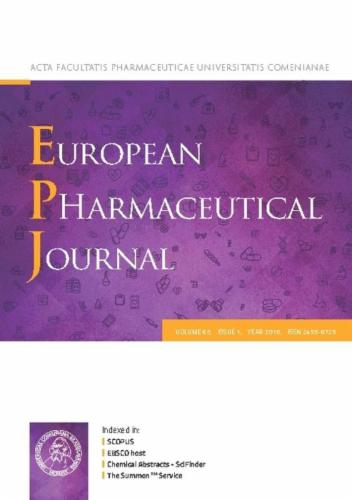基于汉族ADME基因全外显子组测序的遗传变异特征研究。
IF 4.3
3区 医学
Q1 PHARMACOLOGY & PHARMACY
引用次数: 0
摘要
背景:吸收、分布、代谢和排泄(ADME)基因的遗传变异会影响药物的疗效和副作用。全外显子组测序(WES)可有效识别这些变异。由于种族差异,西方人群的研究结果可能不适用于中国汉族人群:本研究旨在利用 WES 数据调查汉族人群中与 ADME 基因相关的遗传变异、代谢表型和药物影响:方法:ADME 基因和药物概况来自多个数据库。WES数据来自湘雅三医院的357份样本和 "华表计划 "的5000份样本。WES后,使用fastp进行质量控制;使用BWA、samtools和Picard软件进行比对、测序和去重复;使用GATK进行碱基质量得分重新校准;检测变异后进行变异质量得分重新校准,并使用ANNOVAR对变异进行注释。通过PharmGKB等数据库获得ADME基因和药物谱,然后提取ADME基因外显子区的所有变异。分析了这些变异的分布特征、种族差异以及 CYP2B6 等重要 ADME 基因的代谢表型分布。利用ADME基因变异预测框架预测ADME基因的有害变异,并利用Western印迹和酶测定验证有害变异的影响:我们整合了 604 个 ADME 基因和 972 种药物。5,357 份汉族 WES 样本中有 33,925 个单核苷酸多态性(SNPs)和 484 个插入缺失(InDels),其中 88.9% 为罕见变异。在 SNPs 中,60.9% 是酶和转运体基因的新功能突变;InDels 也影响到这些基因。我们发现了关键 ADME 基因中的中国特异性变异以及可能影响药物使用的种族特异性代谢表型。最后,我们筛选了 3,657 个潜在的有害变异,其中 45.6% 是新变异。Western 印迹和酶活性测定证实,一些有害突变显著降低了 CYP2C19 基因的表达和功能(P < 0.01)。本文章由计算机程序翻译,如有差异,请以英文原文为准。

Research on genetic variant characteristics in ADME genes based on whole-exome sequencing in the Han Chinese population
Background
Genetic variants in absorption, distribution, metabolism, and excretion (ADME) genes affect drug efficacy and side effects. Whole-exome sequencing (WES) effectively identifies these variants. Findings from Western populations may not apply to the Han Chinese population due to ethnic differences.
Objective
This study aimed to investigate genetic variants, metabolic phenotypes, and drug impacts related to ADME genes in the Han Chinese population using WES data.
Methods
ADME genes and drug profiles were sourced from multiple databases. WES data were collected from 357 samples at Third Xiangya Hospital and 5,000 samples from the “HuaBiao Project.” After WES, fastp was used for quality control; BWA, samtools, and the Picard software were used for comparison, sequencing, and de-duplication; GATK was used for base quality score recalibration; and variant quality score recalibration was carried out after detecting the variants, and the variants were annotated using ANNOVAR. ADME genes and drug profiles were obtained through PharmGKB and other databases, and then all variants in the exonic regions of ADME genes were extracted. The distributional characteristics of these variants, ethnic differences, and metabolic phenotype distribution of important ADME genes, such as CYP2B6, were analyzed. Prediction of deleterious variants of ADME gene employed the ADME gene variant prediction framework, and western blotting and enzyme assays were used to validate the impact of harmful variants.
Results
We integrated 604 ADME genes and 972 drugs. There were 33,925 single nucleotide polymorphisms (SNPs) and 484 insertion-deletions (InDels) in 5,357 Han Chinese WES samples; 88.9 % were rare. Of the SNPs, 60.9 % are new functional mutations in enzyme and transporter genes; InDels also affected these genes. We discovered Chinese-specific variants in key ADME genes and ethnic-specific metabolic phenotypes that could affect drug use. Finally, we screened 3,657 potentially harmful mutations; 45.6 % are novel. Western blotting and enzyme activity assays confirmed several harmful mutations significantly reduced CYP2C19 gene expression and function (P < 0.01).
求助全文
通过发布文献求助,成功后即可免费获取论文全文。
去求助
来源期刊
CiteScore
9.60
自引率
2.20%
发文量
248
审稿时长
50 days
期刊介绍:
The journal publishes research articles, review articles and scientific commentaries on all aspects of the pharmaceutical sciences with emphasis on conceptual novelty and scientific quality. The Editors welcome articles in this multidisciplinary field, with a focus on topics relevant for drug discovery and development.
More specifically, the Journal publishes reports on medicinal chemistry, pharmacology, drug absorption and metabolism, pharmacokinetics and pharmacodynamics, pharmaceutical and biomedical analysis, drug delivery (including gene delivery), drug targeting, pharmaceutical technology, pharmaceutical biotechnology and clinical drug evaluation. The journal will typically not give priority to manuscripts focusing primarily on organic synthesis, natural products, adaptation of analytical approaches, or discussions pertaining to drug policy making.
Scientific commentaries and review articles are generally by invitation only or by consent of the Editors. Proceedings of scientific meetings may be published as special issues or supplements to the Journal.

 求助内容:
求助内容: 应助结果提醒方式:
应助结果提醒方式:


